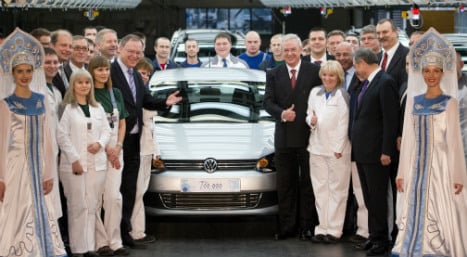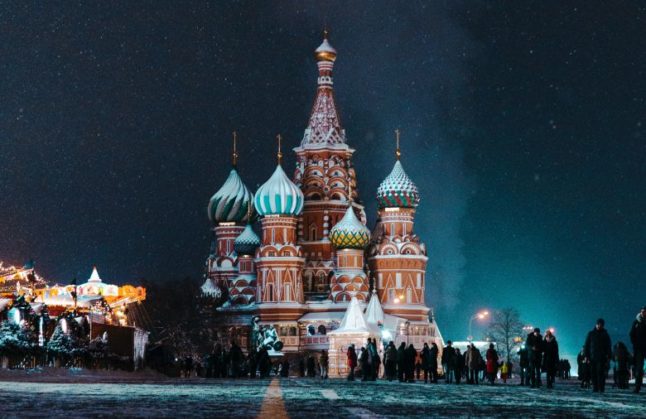A study by management consultancy EAC found that 20 firms from the DAX stock market index of Germany's biggest companies had done just €15 billion of business with Russia so far in 2015, compared with €19 billion in 2014 and €22 billion in 2013.
EAC partner Dietmar Kusch told The Local that while the survey only covered 20 of Germany's biggest companies, the analysts believe it is representative of the overall impact of Russia's economic woes on Germany.
“Of course, the German Mittelstand [small- and medium-sized companies] makes up almost two-thirds of the economy. But I think they will have experienced the same thing as the largest companies,” Kusch said.
He pointed out that many smaller companies are suppliers to the biggest ones, such as the car makers, and would therefore have suffered knock-on effects.
Germany's top-performing companies in business with Russia over the past year have been car makers Volkswagen, Daimler and BMW, as well as engineering and high-tech company Siemens, energy supplier Eon and chemical manufacturer BASF.
But EAC expects business to stagnate over the coming year, with a slow recovery only appearing in 2017 onwards.
Particularly hard hit have been German machine tool and medical technology exporters, which used to make up around 50 percent of exports to Russia.
Despite the tough climate, some German companies like Eon, Deutsche Post and Henkel – a home cleaning, cosmetics and adhesives giant – continued to make above-average profits in Russia.
The top German companies in Russia tended to be those operating factories or offering services in the country.
Adidas and Henkel made seven percent of their annual turnover in Russia in 2014.
Sanctions not whole story
Russia has suffered particularly harshly through the 2014 oil price crash when the value of a barrel of oil halved, and has stagnated at a price of $40-45 (€37 – €42) since.
“Russia is very dependent on how the oil price develops,” Kusch said. “It's at a historic low and is dragging the whole Russian economy down.
“There's no indication of recovery in the oil market, and no clear driver for economic recovery in Russia.”
Moscow has also been forced to devalue the ruble as it battles with its economic woes.
Salaries and investment have both fallen with the economy, leaving order books empty for German companies selling to Russia.
Cancelled projects and hard times
The EU imposed sanctions over Russia's illegal annexation of Crimea from Ukraine in March 2014, and is currently targeting 149 people and 37 business entities.
In response, Russia levelled its own sanctions at the EU, hitting parts of Germany – especially the north – hard.
A survey by the German-Russian Chamber of Commerce in January found that dozens of companies were cancelling projects after the sanctions came into effect.
Kusch said that western sanctions had had a harsher impact on the German economy than the Russians' retaliation.
Neither the German-Russian Chamber of Commerce nor the Russian embassy in Berlin would comment on the EAC study when contacted by The Local.
With DPA



 Please whitelist us to continue reading.
Please whitelist us to continue reading.
Member comments